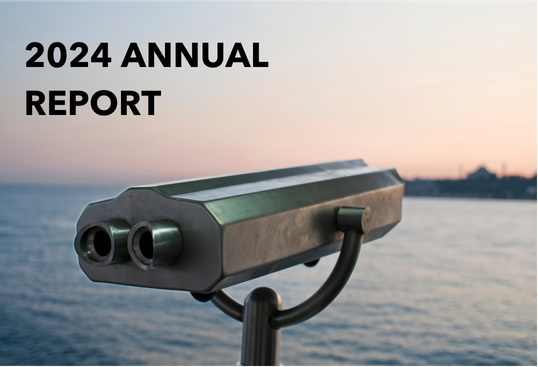At Tall Oak Capital Advisors, we have the privilege of working with business owners and farm families. They have laboured tirelessly for years to build the incredible businesses they have. Transition of these businesses is inevitable; planning for it is invaluable. For some, a transition will be an opportunity to sell, and for others, maintaining the business within the family is the priority. We work with our clients to plan for and to move through these transitions. As we work with these business families, many of which are family enterprises, our approach is rooted in understanding their unique challenges and opportunities, and in supporting them to build legacies that span generations.
Our president and co-founder, Mehendi Kamani, is a friend of Gerard Seijts, Professor of Organizational Behaviour at Ivey Business School and co-author of the recent book Character: What Contemporary Leaders Can Teach Us About Building a More Just, Prosperous, and Sustainable Future.
Character: What Contemporary Leaders Can Teach Us about Building a More Just, Prosperous, and Sustainable Future provides an exceptional opportunity to become a better leader by applying the extraordinary yet down-to-earth insights from the authors’ accessible scholarship and interviews with truly distinguished leaders whose lessons on building stronger societies through character-based leadership are moving, powerful, and evergreen.
Inspired by the insights and frameworks presented in this compelling work, we have applied its principles to the intricate dynamics of family enterprises.
In Character, Gerard Seijts and Kimberley Young Milani emphasize that character is not innate but instead, is developed through deliberate effort and life experiences. They present a framework of key dimensions—such as judgment, courage, integrity, accountability, humility, and transcendence—that are essential for effective leadership. The book underscores that strong character enables leaders to make ethical decisions, foster trust, and create a lasting, positive impact on their organizations and society.
In this article, by integrating some of the lessons from Character with our expertise, we highlight how character leadership is particularly essential for navigating the complexities of family businesses. Through this lens, we discuss insights that can help to build lasting legacies while maintaining harmony across family, ownership, and business systems.
The Importance of Character in Family Enterprises: Lessons Adapted from Gerard Seijts and Kimberley Young Milani’s book Character
Character is foundational in any business, but in the unique context of family enterprises, it plays an even more critical role. Family businesses operate within the intersection of personal relationships, ownership structures, and professional responsibilities. These overlapping dynamics amplify the need for leaders to possess strong, well-developed character traits. Furthermore, family enterprises often have an intergenerational focus, prioritizing not just short-term gains but also a legacy of sustainability and success. In this context, character becomes essential not only for present-day decision-making but also for ensuring the long-term health of both the family and the business.
In their compelling book, Character, Gerard Seijts and Kimberley Young Milani delve deeply into the concept of character through the lens of leadership. Drawing on over a decade of research and real-life stories from 17 exemplary leaders, the authors illuminate how character shapes judgment, behaviour, and leadership outcomes. In our opinion, their insights are particularly relevant for family enterprises, where the interplay between family and business roles demands consistency of a leader’s character traits.
Key Learnings from Character by Gerard Seijts and Kimberley Young Milani
In Character, Seijts and Milani provide a framework for understanding and developing character in leadership. They emphasize that character is not innate; it is built through deliberate practice and shaped by life experiences. The authors highlight several key dimensions of leader character, which are particularly relevant for family enterprises:
1. Judgment
Judgment is the central dimension of character. It is the ability to make sound decisions promptly, based on relevant information and a critical analysis of facts. In family enterprises, it plays a crucial role in balancing the interests of the family, the business, and other stakeholders. Leaders with strong judgment demonstrate flexibility when faced with new information or situations, possess an innate sense of the best course of action, and can delve into the core of complex issues. They excel at reasoning effectively, even in uncertain or ambiguous circumstances, ensuring well-informed and strategic decision-making.
2. Courage
Courage involves doing the right thing, even when it is difficult or unpopular. Family enterprises often face challenging decisions, such as addressing underperformance by a family member or implementing significant changes to the business. Leaders with courage demonstrate unrelenting determination, confidence, and perseverance in confronting difficult situations.
3. Integrity
Integrity is the cornerstone of character. Leaders who hold themselves to high moral standards and behave consistently with their ethical standards, even in difficult situations. In family enterprises, integrity ensures that leaders are seen by others as behaving in a way that is consistent with their personal values and beliefs. Having integrity speaks to behaving consistently with organizational policies and practices.
4. Accountability
Accountability involves taking ownership of decisions and actions. Leaders who are willing to step up and take ownership of challenging issues are accountable. They do not blame others for mistakes but instead learn from them. This dimension is particularly important in family enterprises, where accountability strengthens trust and ensures that leaders uphold their commitments.
5. Humility
Humility allows leaders to let accomplishments speak for themselves, acknowledges limitations, understands the importance of thoughtful examination of one’s own opinions and ideas and embraces opportunities for personal growth and development. In family enterprises, humility fosters collaboration across generations and encourages open dialogue. As Seijts and Milani write, “Learning and growth require humility. Without it, we can slip into arrogance and hubris, mistakenly believing we already have all the answers.”
6. Transcendence
Transcendence is about maintaining a sense of purpose and drawing inspiration from broader possibilities. Family enterprises that embrace transcendence focus on creating a legacy that extends beyond financial success, contributing to the well-being of the family, the business, and society. By focusing on the future, you want to create for yourself, your family, your team, or your organization, you can identify the learning needed to support both specific goals and broader purposes in your life.
Why Character Leadership Plays an Even Greater Role in Family Enterprises
A family business encompasses three overlapping spheres: family, ownership, and business. Individuals in family enterprises often occupy roles in more than one of these spheres, such as being both a family member and an owner, or a family member who also works in the business. These overlapping roles can create significant challenges, including conflicts of interest, emotional tensions, and governance complexities. Leaders with strong character are better equipped to navigate these challenges, ensuring harmony across all three spheres.
1.Character Across Relationships
Character is the foundation of any successful family enterprise. Leaders with humility and accountability inspire confidence among family members, employees, and stakeholders. In family, character fosters healthy relationships and open communication. In ownership, it ensures that decisions are made with fairness and transparency. In business, this builds credibility with employees, customers, and partners, reinforcing the enterprise’s reputation.
Humility helps leaders in family enterprises appreciate diverse perspectives, enabling collaborative decision-making on business strategy. Accountability drives leaders to own their actions and decisions, embracing both successes and challenges.
2. Balancing Personal and Professional Roles
One of the most complex aspects of family enterprises is the overlap between personal and professional roles. Leaders often need to make decisions that affect both the family and the business, which can create emotional tension. Strong character traits, such as integrity and judgement, help leaders remain fair and composed, ensuring that their decisions are objective and considerate of the broader implications.
For example, integrity is crucial when navigating sensitive issues like succession planning or family disagreements over ownership stakes. Leaders with good judgement have an implicit sense of the best way to proceed even in uncertain situations. Those who exercise good judgment understand when it is appropriate to encourage collaboration or when to be more direct and assertive.
3. Sustaining Intergenerational Legacy
Family enterprises often take a long-term perspective, aiming to preserve the business for future generations. This requires leaders who are not only skilled but also principled. As Seijts and Milani write, “Character is built, ultimately becoming our habit of being.” Leaders with strong character traits, such as courage and transcendence, are more likely to prioritize long-term sustainability over short-term gains. They inspire the next generation to carry forward the family’s values and vision.
Courage empowers leaders in family enterprises to make tough, sometimes unpopular decisions that prioritize the business’s long-term success. Transcendence allows leaders to envision opportunities others may not see, driving innovation and long-term growth strategies.
The Lifelong Journey of Character Development
Seijts and Milani emphasize that character is a lifelong journey. It is developed through experiences, reflection, and deliberate practice. They write, “Our character develops through our behaviour within those moments and, through reflection, by wisdom we glean from the lessons those experiences offer us.”
For leaders in family enterprises, this journey is both personal and collective. By cultivating their own character, leaders set an example for others, inspiring family members and employees to embrace values such as integrity, accountability, and courage. As Nobel laureate Maria Ressa, featured in the book, beautifully puts it, “Who you are, and who you are becoming, is a work of art.”
The authors also highlight the importance of fostering character development in others. They ask, “How are you helping others develop their character by not only exploring what they can do but who they are?” In family enterprises, this question is particularly relevant, as leaders have a unique opportunity to shape the character of the next generation, ensuring the continuity of the family’s values and vision.
Conclusion
Character is the cornerstone of effective leadership, and its importance is magnified in the context of family enterprises. Family businesses operate at the intersection of personal relationships, ownership structures, and business responsibilities. Leaders with strong character dimensions, such as judgement, humility, transcendence and more, are better equipped to navigate these complexities, ensuring harmony across all spheres.
Character by Gerard Seijts and Kimberley Young Milani reminds us that character is not innate. Rather, character is developed through deliberate practice and life experiences. It is a lifelong journey that shapes who we are and how we lead. In family enterprises, character not only drives current success but also fosters a legacy of collaboration and purpose for future generations.
At Tall Oak Capital Advisors, our focus is on providing tailored financial planning and advisory services to support your family and business in achieving long-term success and sustainability. If you’re interested in learning more about our services, please don’t hesitate to reach out to your Tall Oak team.
The views expressed in this commentary are those of Tall Oak Capital Advisors as at the date of publication and are subject to change without notice. This commentary is presented only as a general source of information and is not intended as a solicitation to buy or sell specific investments, nor is it intended to provide tax or legal advice. Statistics, factual data and other information are from sources Tall Oak believes to be reliable but their accuracy cannot be guaranteed. This commentary is intended for distribution only in those jurisdictions where Tall Oak Capital Advisors are registered. Securities-related products and services are offered through Raymond James Correspondent Services Ltd., member Canadian Investor Protection Fund. Insurance products and services are offered through Gryphin Advantage Inc., which is not a member-Canadian Investor Protection Fund. This commentary may provide links to other Internet sites for the convenience of users. Tall Oak Capital Advisors is not responsible for the availability or content of these external sites, nor does Tall Oak Capital Advisors endorse, warrant or guarantee the products, services or information described or offered at these other Internet sites. Users cannot assume that the external sites will abide by the same Privacy Policy which Tall Oak Capital Advisors adheres to.




